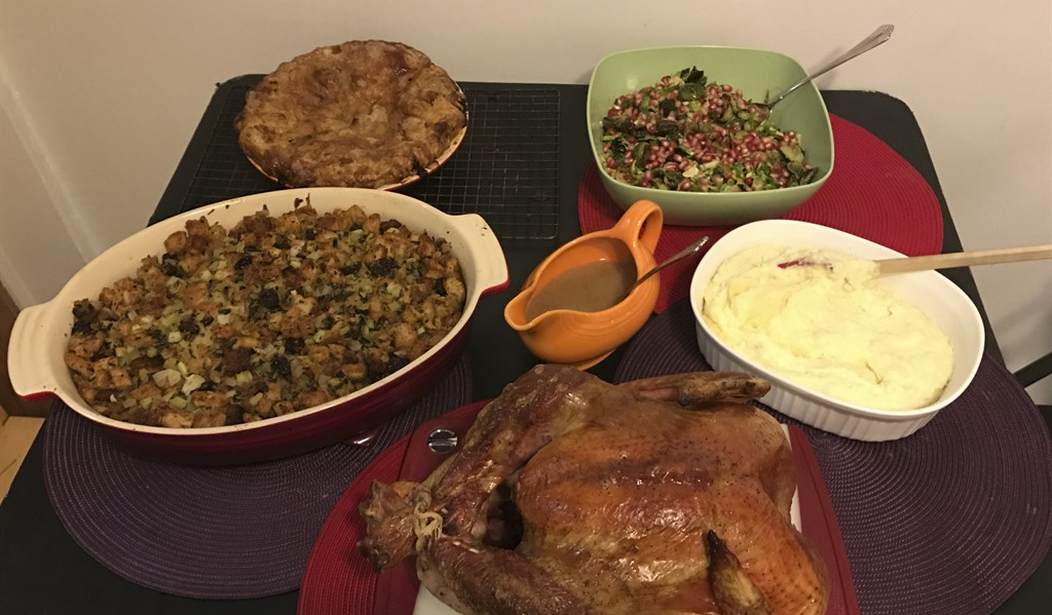IN HIS THANKSGIVING Proclamation of January 1, 1795, George Washington wrote that it was “our duty as a people, with devout reverence and affectionate gratitude, to acknowledge our many great obligations to Almighty God, and to implore Him to continue and confirm the blessings we experienced.”
Abraham Lincoln was the first president to proclaim Thanksgiving a national holiday in 1863 although similar recommendations date back to the late 1770s when, during the American Revolution, the Continental Congress weighed in with the idea.
It is no coincidence that during times of war, man is forced to turn heavenward to offer thanks. When Lincoln issued his Thanksgiving proclamation, the United States was in the midst of a bitter civil war. Lincoln wrote:
“The year that is drawing towards its close has been filled with the blessings of fruitful fields and healthful skies. To these bounties, which are so constantly enjoyed that we are prone to forget the source from which they come, others have been added, which are of so extraordinary a nature, that they cannot fail to penetrate and soften even the heart which is habitually insensible to the ever watchful providence of Almighty God. In the midst of a civil war of unequalled magnitude and severity…needful diversions of wealth and of strength from the fields of peaceful industry to the national defense have not arrested the plough, the shuttle, or the ship; the axe had enlarged the borders of our settlements, and the mines, as well of iron and coal as of the precious metals, have yielded even more abundantly than heretofore.”
Recommended
The events of Lincoln’s day bear somewhat of a resemblance to those in which we now find ourselves. America is involved in an ideological civil war.
Notwithstanding, Americans have little to complain about. The economy is the best in recent memory and more people are employed now than in at least a decade.
The shelves in grocery stores are brimming with fresh meat, dairy products and produce. The only grumbling results from standing line to pay for it.
On Thanksgiving, after eating way more than is advisable, many Americans will amble into their living rooms with family and friends. While the kids race off to play video games, they'll plop themselves into comfortable chairs and tune their wide-screen Dolby surround-sound home theaters to a digital frequency delivered via a cable or from a satellite high overhead in geo-synchronous orbit and watch one group of helmeted men in uniforms attempt to move a leather ball 100 yards while another group of helmeted men tries to stop them.
Go ahead and enjoy--there's no reason to feel guilty about any of this.
The Founding Fathers called it “the pursuit of happiness,” and they included it as one of three basic human rights in the Declaration of Independence.
But if that's all we do on this solemn day; we have missed the reason for the season.
On Thanksgiving, we honor the memory of the Pilgrims and their struggle for religious independence. It had far-reaching consequences, influencing generations of future Americans, ultimately leading them to break with England completely and form the United States of America.
We celebrate the spirit that sparked a journey of unprecedented danger across the Atlantic Ocean, undertaken by 102 men, women and children. After two failed attempts, they boarded the Mayflower.
It was no easy journey. Peter Marshall and David Manuel, writing in “The Light and the Glory,” explain they endured “seven weeks of hell in an ill-lighted, rolling, pitching, stinking inferno.” Finally, on November 9, 1620, the cry of “Land Ho” was heard. Two days later they dropped anchor off the tip of Cape Cod.
The winter was cruel—killing almost half of them. Nevertheless, William Bradford, the governor of Plymouth colony, declared a day of Public thanksgiving in October of the following year. They gathered with Native Americans for a huge feast to give thanks to God.
As we celebrate Thanksgiving this year, let's tear ourselves away from the food and the football long enough to lead our families in prayer, following the examples of the Pilgrims, our Founding Fathers, and Presidents Lincoln and Washington.
“Let us come before His presence with thanksgiving,” urges the writer of Psalm 95. George Washington would remind us, “It is our duty as a people with devout reverence.”
Gregory J. Rummo is a Visiting Instructor of Chemistry at Palm Beach Atlantic University and a Contributing Writer for The Cornwall Alliance for the Stewardship of Creation. The views expressed in his columns are his own.

























Join the conversation as a VIP Member